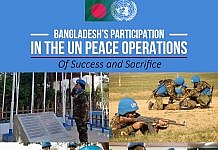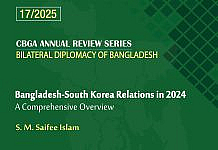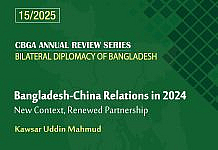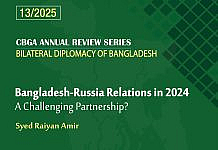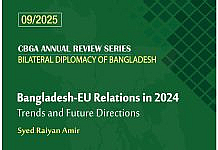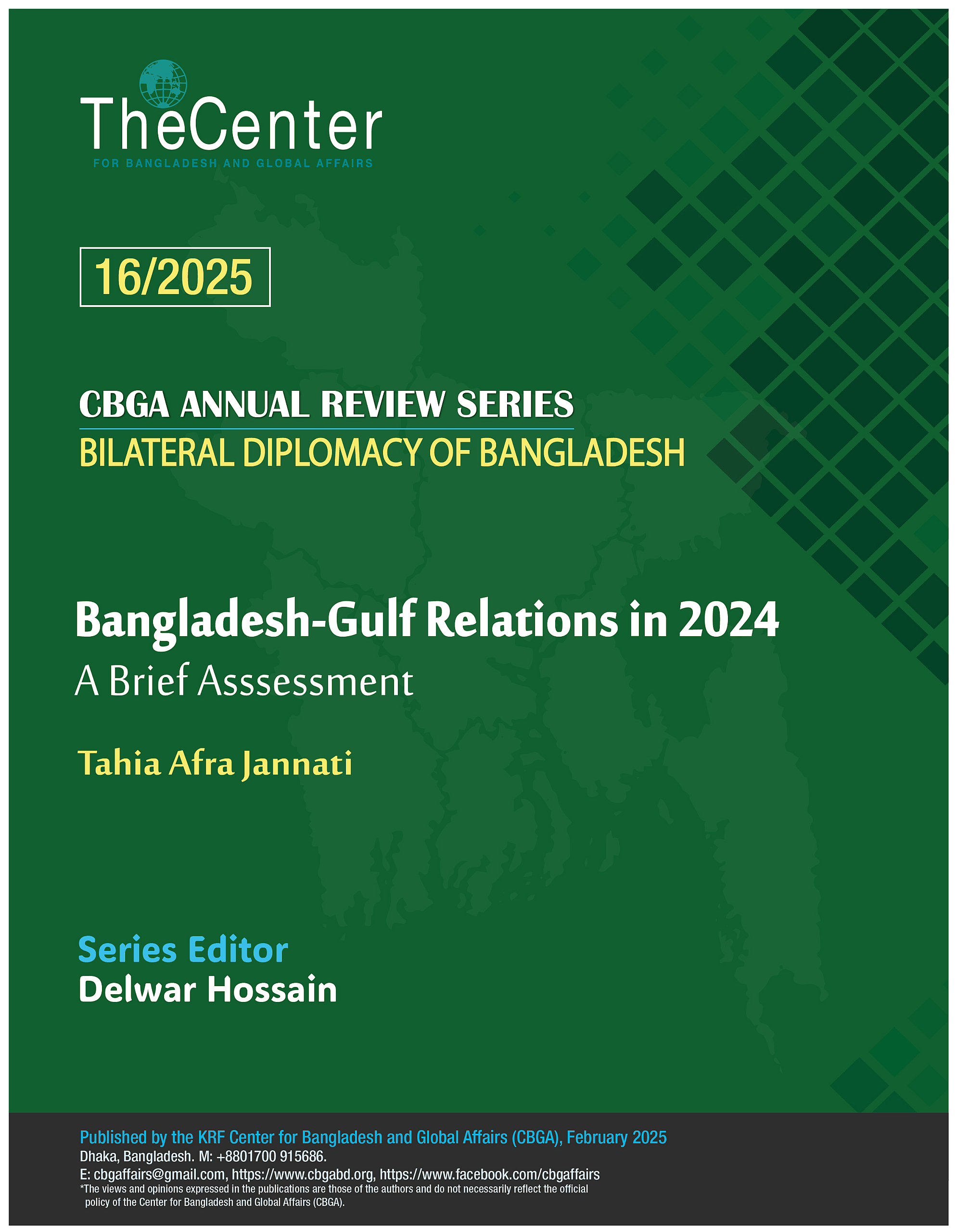
Bangladesh and the GCC countries have a relationship that is social, economic, and culturally complex and diverse based on labor migration, trade, and business collaboration. This partnership up to 2024 has been exhibiting robust performance indicators and dynamic trends. The Gulf region continues to be the largest market for Bangladeshi migrant workers and plays a very important role in Bangladesh’s remittance-receiving economy. On the same note, the economies of the Gulf nations especially the KSA, UAE, and Qatar are transitioning to a more diverse economy utilizing developmental visions such as Saudi Arabia’s Vision 2030 opening up avenues for cooperation in areas of tourism, technology, and infrastructure amongst others. Demand for skilled labor increases as Bangladesh looks to build diplomatic and economic relations in the region; the country is also confronted with the challenge of rising demand for manpower supply alongside the challenge of finding ways to negotiate to ensure an uninterrupted flow. This brief identifies the most important outcomes of Bangladesh-Gulf relations in 2024, analyzes trends that are driving this partnership, and reflects on the potential for further cooperation given the continuously evolving international environment.
On May 7, 2024, a high-profile delegation of Bangladeshi diplomats held an official meeting with the Gulf Cooperation Council (GCC). This meeting held at the GCC Secretariat, Riyadh, Saudi Arabia aimed at reviewing and adopting a proposed five-year cooperative framework action plan. This plan covers the following sectors of interest; security and political affairs, trade and investment, agriculture, food security, climate change, environment, and cultural exchange. Bangladesh has verbally conveyed its non-interference policy in Middle East affairs and stressed that the Middle East is important for the world. Bangladesh has about 5 million expatriates living in the GCC countries and their contribution to the host country and their home country Bangladesh has been tremendous. The proposals that Bangladesh brought up during the meeting in a bid to boost the relations between the two countries were to include setting up a technical committee to debate further contract agricultural production, free trade agreements, private sector investment in renewable energy, and collaboration on renewable energy. The GCC well responded to the proposals and the draft action plan will be fine-tuned with some changes to be made at the ministerial level. The discussions also included important aspects of conflict at the international and regional levels such as the Palestine-Israel conflict, security in the Red Sea lanes, the Rohingya issue, effects of the Ukraine-Russia war, Counter-terrorism, and Cybersecurity. This meeting is a landmark event in enhancing the bilateral relationship between Bangladesh and the GCC countries.
The UAE has also played a pivotal role in deepening its relationship with Bangladesh. At a reception hosted by the UAE Embassy in Dhaka to celebrate its 53rd Union Day, UAE Ambassador Abdulla Ali Al Hmoudi reaffirmed his country’s commitment to strengthening economic and business ties with Bangladesh. The event celebrated 50 years of diplomatic relations between the two nations, highlighting shared history and future aspirations. The ambassador praised the contributions of 1.2 million Bangladeshi expatriates in the UAE and expressed interest in expanding partnerships in civil aviation, ports, logistics, and defense. This vision aligns with ongoing high-level exchanges, such as Bangladesh’s former PM’s communication with UAE President Sheikh Mohamed bin Zayed Al Nahyan in March 2024, which underscored mutual interests in enhancing cooperation across various sectors.
Yet, Bangladesh’s foreign policy priorities are shifting toward migration diplomacy, as remittance income for the country is a major incentive for exporting skilled manpower. Since employment is a big problem in Bangladesh, exporting skilled manpower can provide huge remittances to create a sound foreign exchange reserve. Also, the transformation of the economic structures in the region, where stakes hold such as Saudi Arabia, Egypt, and Kuwait are moving away from oil-based economies through such strategies as Vision 2030 and Vision 2035. These initiatives intend to provide a fix to the dependence on oil by funding sectors like tourism, sports, infrastructural, and technology sectors, which would demand a skilled workforce immediately. Likewise, Europe’s low population growth means that the continent is in desperate need of migrant workers; it is forecasted that the continent will need at least 43.7 million workers in 2050 to sustain the current proportion of the workforce.
Bangladesh has been a perennial source of this excess labor force in the Gulf. In these countries alone more than one lakh Bangladeshi people got jobs during this pandemic. Saudi Arabia was the largest source of overseas employment in Bangladesh in 2021, which accounted for 76% of the total, and provided work to 4.57 lakh Bangladeshi workers. New areas of growth such as the tourism, hospitality, and technology sectors in the Middle Eastern countries also hold out opportunities for qualified and skilled Bangladeshis. Skilled labour on the other hand earns a much better wage than untrained labour. For instance, the wages of skilled workers in Saudi Arabia currently range from Tk52,000 to Tk 93,000, while those of the low-skilled are from Tk 35,000–to Tk 55,000. This shows that there are three times as many remittance earnings from skilled workers than unskilled ones, the need to develop skills. In 2023, Bangladesh set a record by sending 13.07 lakh workers abroad, of which 7.8 lakh went to the Gulf countries. Saudi Arabia alone employed 4.98 lakh Bangladeshi workers, while Oman, the UAE, and Qatar received 1.28 lakh, 0.98 lakh, and 0.56 lakh workers, respectively.
These figures highlight the region’s significance as a labor market for Bangladesh. Historically, Bangladeshi expatriates have contributed primarily to the manual labor sector, particularly construction. However, the shift in Gulf economies towards tourism, hospitality, and technology presents new opportunities for skilled and semi-skilled workers. Skilled workers earn significantly higher wages compared to their less-skilled counterparts, making skill development a priority. For instance, in the UAE, a skilled worker earns approximately Tk53,000-80,000 per month, compared to Tk36,000-56,000 for a less-skilled worker. Similar wage disparities exist in Saudi Arabia, further emphasizing the financial advantages of exporting skilled labor.
However, to enhance the potential of migration diplomacy, the Ministry of Expatriates’ Welfare and Overseas Employment has a vital part. To advance this ministry in budgeting, staffing, and promotion, it is necessary to enhance migration diplomacy and promote overseas employment. By entering into Memorandum of Understanding (MoU) agreements with the recipient countries, an adequate supply of manpower can be guaranteed. The ministry must cooperate with Bangladeshi embassies in overseas migration diplomacy. Embassies can also act as important linkage agencies whereby the ministry establishes contact with industries and companies abroad for purposes of establishing employment opportunities. In the light of global diversification of the labor market, Bangladesh has to be more active to sustain its market for skilled manpower.
The bilateral relation between Bangladesh and the countries in the Gulf region in 2024 should be a mutually beneficial one predicated on economic and social cooperation. Bangladesh’s migrant workers to the Gulf countries have continued to support both the remittance-earning Bangladesh economy and the labor-demanding sectors in the Gulf region. On the same note, the ongoing diversification of the economy of the Gulf partners creates new dimensions for cooperation in sectors. However, the continuation and growth of this relation need active planning, diplomacy, and entering into wide-ranging agreements. By addressing challenges and leveraging emerging trends, Bangladesh can solidify its position as a key partner to the Gulf region, ensuring long-term socio-economic benefits for both sides.
– Tahia Afra Jannati is a Research Intern at the KRF Center for Bangladesh and Global Affairs (CBGA).


